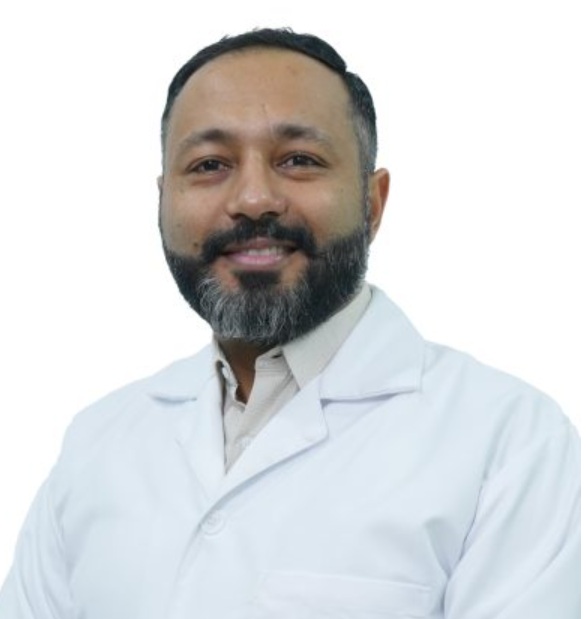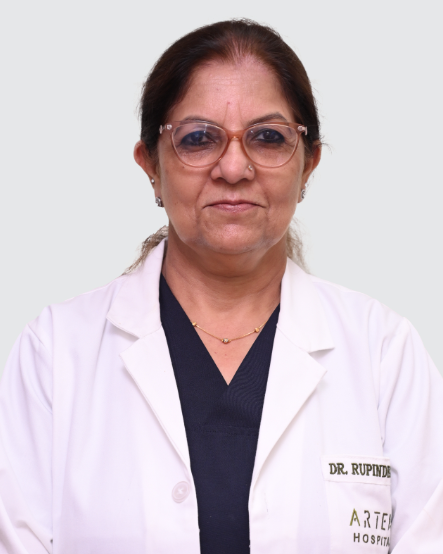Difference between Obstetrics and Gynaecology

Quick Summary
- Obstetrics and gynaecology are two different specialities that focus on different aspects of the female reproductive system.
- Obstetrics deals with the welfare of pregnant women and the newborn baby, while gynaecology deals with all aspects of a woman's reproductive health.
- It is important to understand which specialist you need to see for your specific issues, as a woman's needs change throughout her life.
Table of Contents
Are you seeking reproductive care or pregnancy healthcare but confused between an obstetrician and a gynaecologist? You are not alone! Several women are unaware of what these two specialities, obstetrics and gynaecology, deal with.
Both specialities focus on two different aspects of the female reproductive system. While obstetrics deals with the welfare of pregnant women and the newborn baby and gynaecology deals with all aspects of a woman’s reproductive health.
Since a woman’s needs change throughout her life, it is important to understand which specialist you need to see for your specific issues. The following blog discusses the differences between obstetrics and gynaecology in detail.What is Obstetrics?
Obstetrics is a specialisation that deals with pregnancy, from prenatal to post-natal care. It includes interventions to safeguard the health of the mother and the foetus during pregnancy.
Obstetricians are doctors who are specially trained to manage and care for women during this time, including managing normal and high-risk pregnancies and the delivery of babies.
Obstetricians also provide counselling and support to expectant mothers and their families during this time and ensure the well-being of both mother and baby. They can also help if you are suffering from postpartum depression
Obstetrics also covers the management of complications that may arise before or during pregnancy, such as.
- Infertility
- Preeclampsia
- Uterine rupture
- Placental abruption
- Prolapsed cord
- Haemorrhage
- Sepsis
- Miscarriage
- Stillbirth
- Ectopic pregnancy
- Foetal distress
- NICU care
- General post-natal care


What is Gynaecology?
Gynaecology focuses on a woman’s reproductive health, from puberty to menopause and beyond. Gynaecology also encompasses the diagnosis and treatment of a wide range of conditions, including
- Irregular menstruation
- Amenorrhea (absence of menstruation)
- Dysmenorrhea (painful menstruation)
- Incontinence
- Vaginal infections due to microorganisms such as fungi and bacteria
- Cancer of the reproductive system
- Conditions that cause pain during sex
- Prolapse of pelvic organs
- Cervical and vaginal polyps
- Endometriosis
- Ovarian cysts
- Uterine fibroids
- Urinary tract problems
- STI treatment
Gynaecologists are trained in performing diagnostic tests and procedures, such as pelvic exams, biopsies, and colposcopy. They may perform surgeries, including hysterectomies and other procedures, to treat conditions affecting the reproductive system.
Aside from medical conditions, gynaecologists advise on sexual matters, such as contraceptives, protection against sexually transmitted diseases, and responsible sexual practices. In short, a gynaecologist takes care of any non-pregnancy-related issue related to female reproductive health.
Obstetrics vs Gynaecology
While obstetrics and gynaecology overlap and work closely to optimise the health and well-being of women, they have distinct roles in the medical field. The former deals with caring for women and their babies during pregnancy, and the latter is a speciality for treating women’s reproductive systems.
The following table compares obstetrics vs gynaecology based on their meaning, specialisation, training, and more.
| Parameter | Obstetrics | Gynaecology |
| Definition | Study of pregnancy, childbirth, and the postpartum period, including the care of the mother and the baby. | Study of the female reproductive system and the treatment of related diseases and disorders. |
| Focus | Monitoring and care of a woman and her unborn baby during pregnancy, delivery, and the postpartum period. | Diagnosis, treatment and care of reproductive health issues in women. |
| Specialist | Obstetrician | Gynaecologist |
| Patient | Pregnant women | Women of reproductive age and beyond |
| Specialised in |
|
|
| Surgical Procedures |
|
|
Education and Training for Obstetrics and Gynaecology
Both obstetricians and gynaecologists are trained together. This is why most gynaecologists are also obstetricians who can handle pregnancy cases effectively. At post graduation level, obstetrics and gynaecology are grouped under one speciality called OB/GYN.
After graduating from medical school, OB/GYNs can complete a four- or five-year residency-training program focusing on obstetrics or gynaecology specifically. While obstetrics specifically deals with all aspects of pregnancy (from prenatal to after-delivery), gynaecology deals with the care of the reproductive system.
When to Visit an Obstetrician or a Gynaecologist?
Women who are not pregnant should visit a gynaecologist for their reproductive health needs. You can begin visiting a gynaecologist regularly during your teen years and continue throughout the rest of your life. The reasons to visit a gynaecologist may include the following:
- Getting pap smears for cervical cancer screening
- Deciding the right birth control based on your health history and lifestyle
- Getting a diagnosis and treatment for sexually transmitted diseases
What to Expect during Consultation with an Obstetrician or a Gynaecologist?
The visit to both an obstetrician and a gynaecologist may start with a primary health check, such as blood pressure, temperature, and weight. The doctors may also conduct blood and urine tests.
- During a regular checkup, the gynaecologist will evaluate your health history and perform a breast and pelvic exam. Based on your symptoms and conditions, the gynaecologist may perform a pap smear by collecting a sample of your cervical tissue.
- During pregnancy, an obstetrician will listen to the baby’s heartbeat and feel the belly to check for the baby’s position and size. The obstetrician may perform other tests depending on your health history and condition.
Takeaway
While both obstetrics and gynaecology focus on the health needs of women, they are different specialities dealing with different aspects of the female reproductive system.
Obstetrics is the branch of medicine that offers care during pregnancy whereas gynaecology is the field that manages conditions concerning the reproductive organs.
The difference between obstetrics and gynaecology can get confusing for someone who does not require an obstetrician or a gynaecologist in their everyday life. However, it is important to understand these differences to decide which doctor is best for your specific needs.
If you have any more doubts regarding obstetrics vs gynaecology, you can get in touch with an HexaHealth expert to clarify your doubts. Our team will help you connect with the most experienced and qualified obstetricians and gynaecologists as per your needs. Or, if you wish to consult an OB/GYN for all your needs, we can help you with that too!Frequently Asked Questions
What is the difference between obstetrics and gynaecology?
The difference between obstetrics and gynaecology is that obstetrics deals with the care of the mother and baby during the gestation period, from pre-conception and pregnancy to childbirth and after delivery.
Meanwhile, gynaecology deals with all other aspects of women’s reproductive health, from their first period to menopause. Obstetrics and gynaecology are distinct fields under one speciality, OB/GYN.
Who is an Obstetrician?
An obstetrician is a physician specialising in providing care to mothers and babies during pregnancy and after childbirth.
Obstetricians manage and treat medical conditions related to pregnancy, such as preeclampsia, placental abruption, ectopic pregnancy, miscarriage, etc. They perform surgeries related to labour and delivery, like vaginal and caesarean delivery.
Who is a Gynaecologist?
Which is better, a gynaecologist or an obstetrician?
Is obstetrics part of gynaecology?
Can I be a gynaecologist without being an obstetrician?
Do gynaecologists deliver babies?
Is a gynaecologist a surgeon?
Is gynaecology only for females?
Last Updated on: 20 February 2023
Reviewer

Dr. Arti Sharma
MBBS, DNB Obstetrics and Gynaecology, Diploma In Cosmetic Gynaecology
9 Years Experience
Dr Arti Sharma is a well-known Obstetrician and Cosmetic Gynaecologist currently associated with Aesthetica Veda in Bengaluru. She has 9 years of experience in Obstetrics and Cosmetic Gynaecology and worked as an expert Obstetrician...View More
Author

Rajath R Prabhu
MSc. Clinical Research I PG Diploma in Public Health Services Management
3 Years Experience
His work in medical content writing and proofreading is noteworthy. He has also contributed immensely to public health research and has authored four scientific manuscripts in international journals. He was assoc...View More
Expert Doctors (10)
NABH Accredited Hospitals (6)
Latest Health Articles





























 Open In App
Open In App